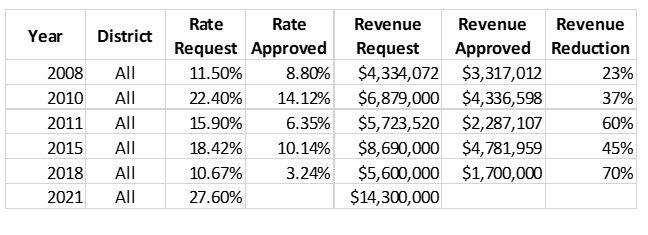The following statement is from Loraine Huchler, P.E., CMC®, FIMC. Mrs. Huchler succinctly and accurately puts the sale of Cape Charles’ water and wastewater utilities in perspective. This week, the Cape Charles Town Council voted to enter negotiations with VAW to sell off town utilities. The mantra coming out of Plum Street is that this in no way obligates the town and that no decision has been made. During the Special Meeting, Councilmember Follmer went full Nancy Pelosi (we have to pass the bill to see what’s in the bill) in defending his vote to enter negotiations by saying that they need to do this to get all their questions answered. Really? Wouldn’t you rather have all answers before entering the negotiation phase? We’ve heard over and over that no decision has been made. My Sicilian grandmother would say, whenever someone has to say that they haven’t made a decision more than once, they’ve already decided.
Below are Mrs. Huchler’s comments to Town Council:
Two weeks ago, we had the first opportunity to hear from the PPEA consultant and Virginia American Water (VAW). The council listened; the town manager had some answers that were not very helpful – like the details for the 10-year operating and capital cost projections if the Town keeps the plant. The answer was – they don’t have that kind of specific data. Does the Town really want to rely on unvalidated cost projections for the base case to make a huge financial, town-quality-of-life, and political decision?
At the town hall meeting, the town manager urged patience; that it was still early in the process. Here we are, two weeks later, already entering into negotiations. Did the council investigate the impact of concerns raised by stakeholders? Or has the council already made up their minds that they will proceed with the sale?
Here’s the elephant in the room: the annexation agreement that obligates Preserve Communities (formerly Bay Creek) to contribute funds to expand the plants as they build more houses and the demand increases. The wastewater plant is already exceeding permitted volumes on some summer weekends. What is the planning commission’s projection about that date – and, more importantly, the “drop dead” date – e. g. the time that the town would have to start planning the build out?
The language in the annexation agreement is clear: whoever currently owns the development must fund the future build out. Is the town confident that Preserve’s liability would transfer to the new owner, VAW? Would the town’s liability transfer to VAW? The town has been escrowing a portion of revenues in reserve accounts. The town manager said that the escrowed funds would not be transferred to VAW. Would the town use these funds as a bargaining chip to sell the plant? Would VAW discount their offer based on the disposition of these escrowed funds? Does the town have a legal opinion regarding the town’s liability to VAW with respect to the annexation agreement? The Town Manager indicated that the agreement is poorly worded and has no data about Preserves’ fair contribution. How can the Town be confident that VAW won’t proceed to sue the Town for the Town’s escrowed funds and/or for Preserve’s liability when the time for the future expansion arrives?
Finally, I want to caution the council about treating the current rate projections as accurate. They’re not accurate; they are a projection based on the PPEA consultant’s estimates. VAW would not provide any specific information about rates – except to imply that they would be lower once the rate consolidation process was complete.
Rate consolidation spreads the operating and capital costs across all ratepayers. The biggest costs are for infrastructure. Compared to the other VAW service areas, Cape Charles is a stranded utility – it has the smallest ratepayer base and service area and modern plants that require minimal capital improvements but it’s wildly expensive to expand the service area. The other service areas are mostly high-density suburban or rural-suburban that have had rapid population growth and infrastructure expansion.
The bottom line is that, in the long term, rate consolation will not keep the rates low in Cape Charles. Instead, it’s likely that Cape Charles – with lower-than-average capital and infrastructure costs – will be subsidizing the costs for other systems. A review of the commission that grants rate increases shows staggering increases every several years. Ready: 2008 – 9%; 2010 – 14%; 2011 – 6%; 2015 – 10%; 2018 – 3%; 2021 – 28% increase has been requested but not yet approved. Municipal officials from all of the districts have been protesting these increases – with little or no effect. When we talk about loss of control over rates – this is what it looks like.

Despite analysis such as this, in the March 5th PPEA Message #5 from the Town Manager, it stated: “During these presentations, with the help of our consultant, we tried to outline two potential ways forward. The first was the status quo option, with the Town retaining ownership and operation of these systems. The second was the option of selling our water and wastewater utilities to Virginia American Water (VAW). In general terms, this analysis showed that if we keep these systems, our rates will likely increase over the next ten years. But if we sell these utilities, rates are likely to decrease over that same period of time.”
The data supplied by Loraine Huchler seems to dispute the notion that rates will actually decrease over time.
Well done, both of you, Lorraine Huchler and the venerable Cape Charles Mirror, one of the last grand palladiums of liberty there is in all of America!
Rates Lower ??
THAT
NEVER HAPPENS
ONCE THATS DONE